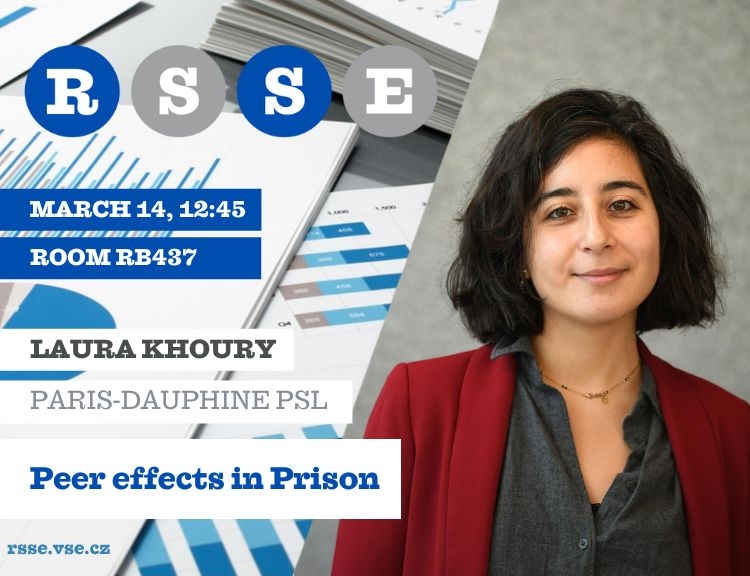Laura Khoury (Paris-Dauphine PSL) 14.3.2024
It is our pleasure that Dr. Laura Khoury (Paris-Dauphine PSL) will present on Thursday, March 14, 2024, at 12:45 in room RB437 about the topic “Peer effects in Prison”.
Registration is not required and anyone who would like to attend is warmly invited.
It is also possible to participate online via MS Teams. To get access, please, contact lubomir.cingl@vse.cz.
ABSTRACT: Peer interactions likely play an especially important role in the criminal sector due to its secretive nature and lack of formal institutions. Crucially, a large part of criminal peer exposure happens in prison and is thus directly under the influence of policy makers and prison administrators. This paper provides a more comprehensive understanding of these prison peer effects, shedding light on how to reduce recidivism and criminal network formation through changes in the composition of inmates. Our research design causally identifies peer effects in prison using rich Norwegian register data on over 150,000 prison spells and leveraging within-prison facility variation in peers over time. We produce several novel findings. First, exposure to more experienced co-inmates increases recidivism. Second, our results underscore the role of homophily and suggest network formation rather than skill acquisition as an important mechanism. Third, exposure to “top criminals” plays a distinctive role in shaping recidivism patterns. Fourth, we provide the first explicit documentation of criminal network formation among prison co-inmates.
BIO: She is an Assistant Professor (tenure track) at the University of Paris Dauphine-PSL. She is also an affiliate at the Centre for Experimental Research on Fairness, Inequality and Rationality (FAIR, NHH), the Labor Chair (Paris School of Economics), and the IPP (Institut des Politiques Publiques). Her research is at the intersection of labor, public, and crime economics. In one strand of research, she studies the effects of social insurance on labor market outcomes and inequalities. In a second strand of research, she investigates the effects of the penal system on criminal behaviors and the future of offenders.
